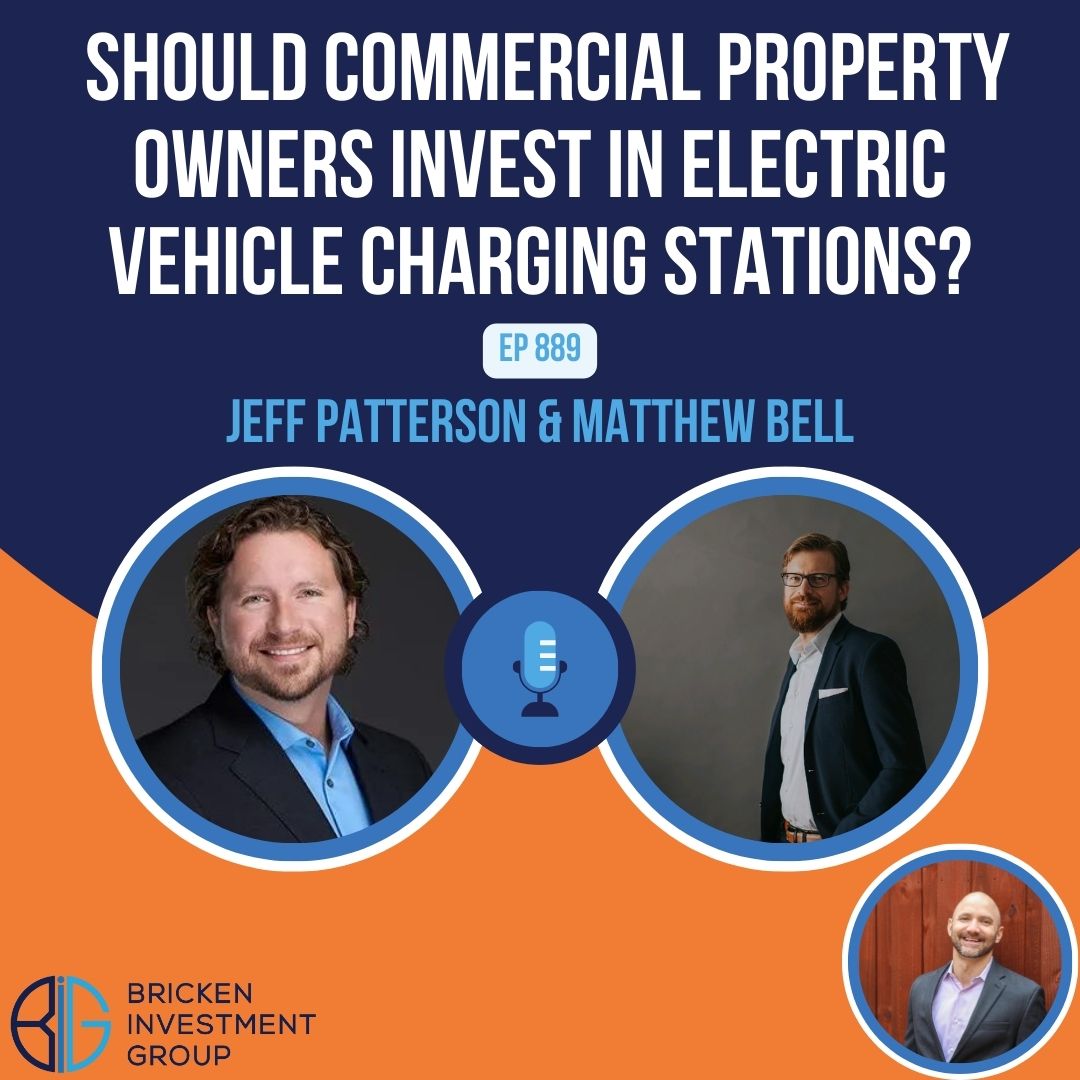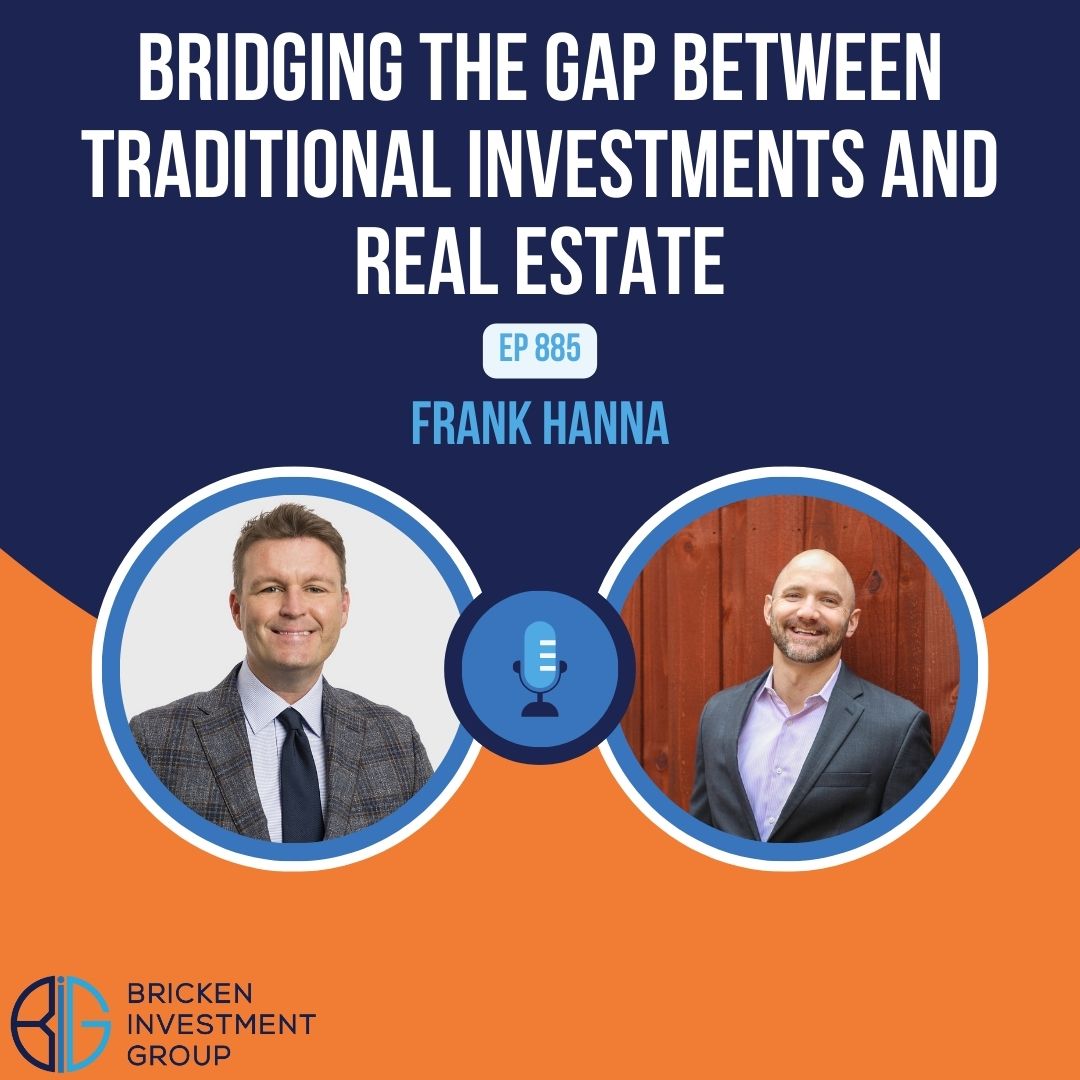The Most Crucial Tax Advice You Need for Successful Real Estate Transactions
Description
Today's guest is Michael Wiener.
Michael Wiener, Partner at Greenberg Glusker in Los Angeles, focuses his practice on structuring real estate and corporate transactions in a tax-efficient manner and providing his clients with creative solutions to complex tax issues.
Show summary:
In this episode Michael Wiener discusses various topics, including 1031 exchanges, California property tax, and partnership tax issues. Michael emphasizes the importance of consulting tax advisors early in the process and having a sophisticated team to handle all aspects of a transaction. He also shares his personal experience as an investor and the complexities of holding real estate through legal entities. The episode provides valuable insights into real estate transactions and tax implications.
--------------------------------------------------------------
The 1031 Exchange Challenge (00:04:37 )
Understanding Taxable Boot (00:08:25 )
Complex Math in Tenancy in Common (00:09:42 )
The 11th Hour Panic (00:11:01 )
Consult Your Tax Advisors Early (00:14:34 )
Complexities of Partnerships and Separate Exchanges (00:18:59 )
Passive Investing and Syndication (00:22:00 )
Negotiating 1031 Exchange in Joint Venture Agreement (00:23:00 )
Challenges of Distributing Cash from 1031 Exchange (00:23:59 )
--------------------------------------------------------------
Connect with Michael:
Linkedin: https://www.linkedin.com/in/michael-wiener-50a8a73/
Web: https://www.greenbergglusker.com/michael-wiener/insights/.
Connect with Sam:
I love helping others place money outside of traditional investments that both diversify a strategy and provide solid predictable returns.
Facebook: https://www.facebook.com/HowtoscaleCRE/
LinkedIn: https://www.linkedin.com/in/samwilsonhowtoscalecre/
Email me → sam@brickeninvestmentgroup.com
SUBSCRIBE and LEAVE A RATING. Listen to How To Scale Commercial Real Estate Investing with Sam Wilson
Apple Podcasts: https://podcasts.apple.com/us/podcast/how-to-scale-commercial-real-estate/id1539979234
Spotify: https://open.spotify.com/show/4m0NWYzSvznEIjRBFtCgEL?si=e10d8e039b99475f
--------------------------------------------------------------
Want to read the full show notes of the episode? Check it out below:
Michael Wiener (00:00:00 ) - You sell $20 million of real estate that has $10 million of equity. You need to purchase at least $20 million of real estate with at least $10 million of equity, because you also see, some people will say, hey, well, I purchased the $20 million of real estate. I got a $12 million loan, and I just cashed out $2 million. And yeah, no, you did. That's great. But. It's taxable boot.
Intro (00:00:27 ) - Welcome to the how to Scale commercial real estate show. Whether you are an active or passive investor, we'll teach you how to scale your real estate investing business into something big.
Sam Wilson (00:00:40 ) - Michael Winer, a partner at Greenberg in Los Angeles, focuses his practice on structuring real estate transactions in a tax efficient manner and providing his clients with creative solutions to complex tax issues. Michael, welcome to the show.
Michael Wiener (00:00:54 ) - Thank you very much for having me, Sam. I'm really excited to be here.
Sam Wilson (00:00:58 ) - Absolutely. The pleasure is mine. Michael. There are three questions I ask every guest who comes on the show in 90s or less.
Sam Wilson (00:01:04 ) - Can you tell me where did you start? Where are you now? And how did you get there? Well.
Michael Wiener (00:01:10 ) - About ten years ago, I had my own firm. I was, uh, or just starting my own firm, um, doing some 1031 work, I. Wound up, uh, seeing an ad on the internet. I don't even remember what I was searching for. For an attorney to join a tax boutique in Century City here in LA. So I responded to the ad. Turned out it was a 1031 exchange specialty, um, firm. And, you know, basically based on my practice and some of the clients I was doing work for, we knew a number of people in common. Um, so I wound up joining that firm. It was a four person firm. A few years later, that firm was acquired by a slightly larger firm, and then that firm was in turn acquired by a larger firm. Um, and throughout it, I have to say, I'm really grateful my, uh, my traditional client base stuck with me throughout all the, uh, throughout all the firm uprisings.
Michael Wiener (00:02:15 ) - Um, and then from the larger firm, which was one of the largest firms in the world, um, I transitioned my practice with, uh, one of my partners and colleagues who have been with me since the, uh, since the smaller firm over here to Greenberg Luster, which was a, um, which was a better fit. I'd worked alongside Greenberg Lustgarten deals, both co-counsel and adverse for many years a phenomenal firm and, uh, and been here for about four and a half years. And I love every day of it.
Sam Wilson (00:02:45 ) - That's cool. And it's 1031. What you still focus on primarily?
Michael Wiener (00:02:51 ) - Um. Uh, I generally wind up dealing with tax issues related to the real estate industry, and obviously 1031 is a big part of that. The last, you know, four ish years, really, since 2018, qualified opportunity zones have, um, have become a bigger part of that. We also being here in California, we have to deal with prop 13, California property tax, um, and transfer tax issues and then also deal with um partnership partner, excuse me, partnership tax issues related to structuring um, joint ventures and and real estate investments.
Michael Wiener (00:03:35 ) - Um, and that then extends its way out to sort of syndicated tenancies of common and, you know, different ways of investing in real estate and being able to take advantage of all of the wonderful tax benefits of doing so.
Sam Wilson (00:03:51 ) - That gets really complicated really fast. For those of us that want to just go out and buy stuff and own and run real estate projects. You're a great complement to our to our team because the rest of us don't want to think about, you know, probably the things that you think about day in and day out, you know, specializing in this. I can only imagine. No, no, two days are the same would be my guess.
Michael Wiener (00:04:14 ) - Oh, no, two days are the same at all. Um.
Sam Wilson (00:04:18 ) - It's crazy.
Michael Wiener (00:04:19 ) - Every day is a unique challenge, and every day is another opportunity to learn. So what are some things?
Sam Wilson (00:04:27 ) - Let's talk. Let's talk. 1031 because you've touched on several things, and I know any one of these topics, we could probably burn the entire podcast, you know, going down that rabbit trail.
Sam Wilson (00:04:37 ) - But let's let's stay on 1031, because I would imagine that for the bulk of our listeners, that's probably something that is applicable. What what are some common challenges and what are some common misconceptions, maybe that you run into when executing a 1031?
Michael Wiener (00:04:55 ) - Well, the first thing that a lot of people forget about or just don't remember is that in addition to spending all of the money that you get from the sale of your relinquished property, you also have to replace your debt.
Sam Wilson (00:05:13 ) - And.
Michael Wiener (00:05:14 ) - You know, you see people from time to time who say, oh yeah, no, we completed our exchange. We sold a property for, you know, $20 million with $10 million of debt, about a $10 million, uh, property. This is very, let me say, very simplifying the facts. Fact pattern. Um. We bought a property with, um, with the $10 million. And, you know, we got this great deal. We only have to put $2 million, $3 million of debt on it.
Michael Wiener (00:05:42 ) - And we, you know, you know, huzzah! We, uh, we completed our exchange, and it's well known. Yea
























